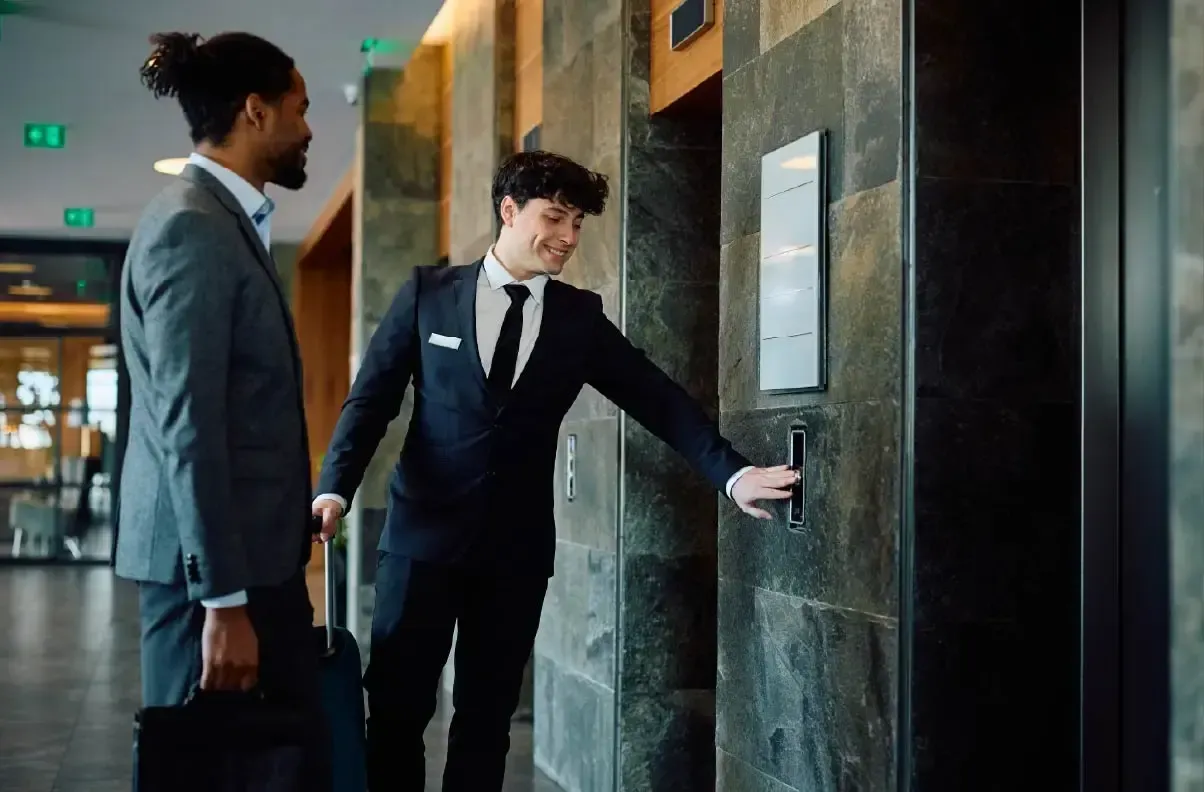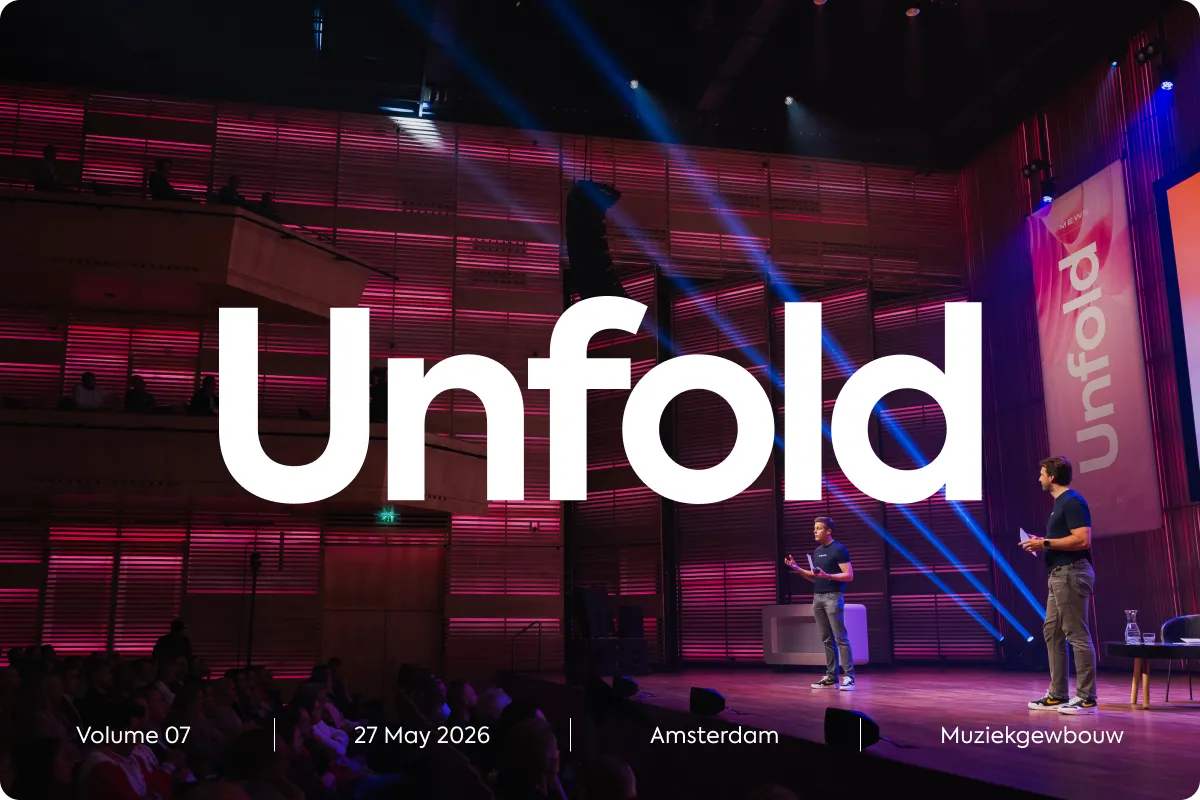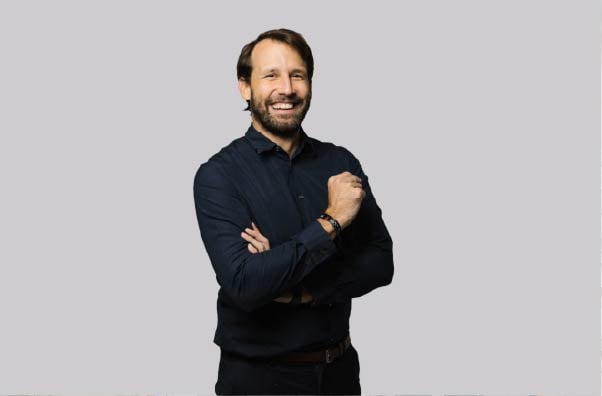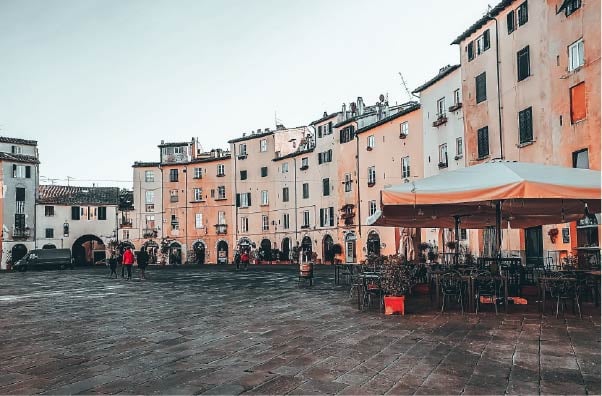Listening to all of the inspiring speakers at Unfold 2023 really got me thinking about the future of hospitality. One thing that has become obvious to me is that we are entering into a new era where all companies will become tech companies.

All customers now expect that every service a company offers will be available digitally, but at the same time these companies must still capture the essence of what is considered great service – and then exceed it.
The new standard of guest expectations
For hotels, this means that everyone expects to find the room online, contextualize price and value online, personalize their pre-arrival requests online, be welcomed and checked in online, receive their room key via their phone... But then walk in and be greeted by a human who has perfect knowledge of everything that happened online prior to their arrival (“What do you mean your systems don’t talk to each other?”).
This guest has sky-high expectations of the experience they’re about to receive – reasonable expectations. After all, if they already put in the time to engage in their digital guest journey, shouldn't there be some reward?
Customers are now extremely savvy about their power, but also wary of the omnipotence of companies and their technology. They understand the power of a negative review, and what a great photo and ringing endorsement can do for a hotel’s standing if they share it with their friends and followers.
They also expect that every exchange made is, in some way, imbalanced. They pay, promote and share their data; their hotel, on the other hand, must perform the service it advertised, both at the property, in the loyalty programme, and through every digital touchpoint. And, of course, the technology must always be fast, seamless and powerful. With customers like these, who needs enemies?
How to adapt to rising standards
For technology companies serving hotels, this comes with a double-edged sword and higher expectations. Not only do we need to make this possible, but we must also think about how to incorporate the weight of expectations into existing hotel workflows. It’s not easy trying to cram the new into the existing, all while expectations have increased and delivery standards exploded. On top of this, the expectation is to never stop innovating – what were innovations of yesteryear slowly fade into being expectations the next.
There are some for whom this is natural. For companies who are born digital-first – like Life House in the US, or BobW in Europe – it means just taking the best of what has been and incorporating that into the way they would like to build.
For others, like Nordic Choice, it’s going to be about taking the best-in-class tech companies together and thinking about transformation. For others, it’s about working with world class transformation consultancies and experts to deliver the kind of reorganization and refocus their businesses need.
But what about the everyone else? How do you benchmark yourself on the tech enablement axis? How do you determine whether a project is good enough, or whether it could still be moved higher and better?
None of this is restricted to any one type of hospitality, or any class. Luxury hotels are just as likely to have an angry client if a high-end service has not been realized in the real world, or if someone’s text message has not been answered in an acceptable time period. Conversely, if you’re a roadside motel, you’re just as likely to have an irate customer if the Wi-Fi is down as if the water doesn’t work – both need someone to fix them immediately or they will get back in their car and drive away, likely leaving a trail of online negativity and multiple chargebacks.
What do you want your business to be known for?
In hospitality, standardization was what created an industry, but variety is what gives it ubiquity. The lesson of the rise of boutique hotels – and then their logical follow-on, Airbnb – is that humans demand standards, but they crave difference, variety and creativity. A text message asking how your check-in experience was used to be a novelty; now the possibility of instantaneous feedback is an expectation. A hotel stay that lacks ease of use, variety and surprise, is now the exception, not the rule. Utility has become a race to the bottom, but creativity still only has upside if we can capture it.
The rise of AI means that certain aspects of the hotel businesses deemed innovative a short while ago are about to become standard. Think of how Stable Diffusion will change what quality our photos should be; how ChatGPT will standardize the efficacy of a chatbot; how AI-assisted travel agents will weigh quality metrics. Then think of where your business will be found wanting.
Consider the knock-on effects. Governments will ask: “If your competitors can store all of this information and feed it to our APIs, why can’t you?”. Lenders will ask: “If your competitors can run this efficiently, why can’t you?”. Prospective employees will ask: “If I can’t be trained easily here, why work here?”
What do you want your business to be known for? If technology and innovation can sustain their speed, then we believe hospitality tech companies must also be the catalysts of change within organizations and hotels. We must evolve, not only to be sources of ever-growing lists of feature requests, but rather proactive agents of the hotelier’s success.
The takeaway: what to do to embrace change
You might be wondering where to begin. If you're looking to embrace these new standards, think about the KPIs that drive your business and ask whether there are any tools out there that could help you improve them.
If you care about guest spend, how has this improved year on year? Could you implement digital ordering tools to help you achieve this? How about the amount of time your guests spent in queues? Perhaps a mobile key could be the answer? What about lowering your cost of acquisition whilst improving your revenue strategy?
As with all things, every journey towards finding your new standards begins with the first steps.
Written by

Richard Valtr
Richard founded Mews in 2012 and has since become one of hospitality's true innovators and thought leaders.










